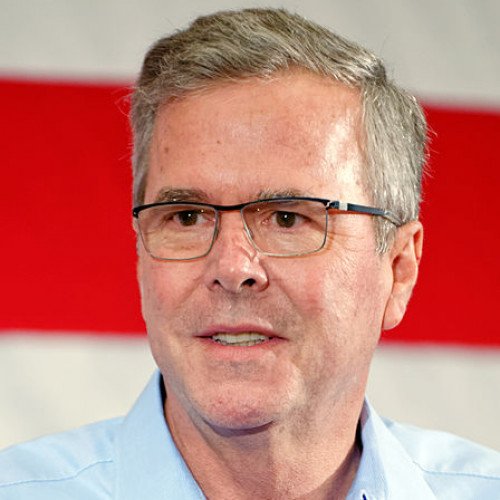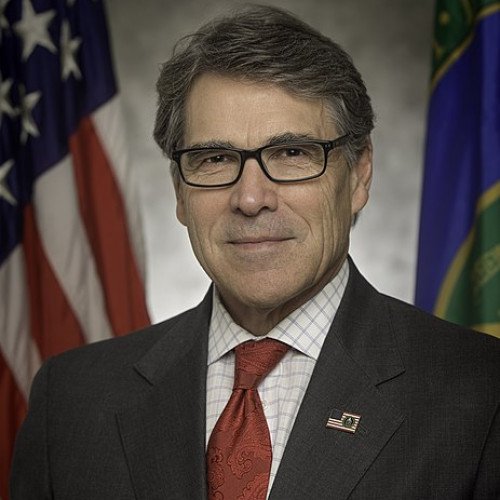Jeb Bush VS Rick Perry

Jeb Bush
John Ellis "Jeb" Bush (born February 11, 1953) is an American politician who served as the 43rd Governor of Florida from 1999 to 2007. Bush, who grew up in Houston, is the second son of the late former President George H. W. Bush and former First Lady Barbara Bush, and a younger brother of former President George W. Bush. He graduated from Phillips Academy in Andover, Massachusetts, and attended the University of Texas at Austin, where he earned a degree in Latin American affairs. In 1980, he moved to Florida and pursued a career in real estate development, and in 1986 became Florida's Secretary of Commerce until 1988. At that time, he joined his father's successful campaign for the Presidency. In 1994, Bush made his first run for office, losing the election for governor by less than two percentage points to the incumbent Lawton Chiles. Bush ran again in 1998 and defeated Lieutenant Governor Buddy MacKay with 55 percent of the vote. He ran for reelection in 2002, defeating Bill McBride and winning with 56 percent, to become Florida's first two-term Republican governor. During his eight years as governor, Bush pushed an ambitious Everglades conservation plan, supported caps for medical malpractice litigation, launched a Medicaid privatization pilot program, and instituted reforms to the state education system, including the issuance of vouchers and promoting school choice. Bush announced his presidential candidacy on June 15, 2015. He suspended his campaign on February 20, 2016, shortly after the South Carolina primary and endorsed Senator Ted Cruz on March 23, 2016.
Statistics for this Xoptio

Rick Perry
James Richard "Rick" Perry (born March 4, 1950) is an American politician who served as the 14th United States Secretary of Energy from 2017 to 2019 and as the 47th Governor of Texas from 2000 to 2015. Perry also ran unsuccessfully for the Republican nomination for President of the United States in the 2012 and 2016 elections. Born into a family of cotton farmers in Haskell, Texas, Perry graduated from Texas A&M University in 1972 and entered into the United States Air Force, serving a five-year stint and achieving the rank of captain. After leaving the Air Force in 1977, Perry returned to Texas and entered politics, serving as a Democratic member of the Texas House of Representatives from 1985 to 1991. In 1989, Perry switched parties and became a Republican, and was elected Agriculture Commissioner of Texas the following year. In 1998, Perry was elected Lieutenant Governor of Texas, becoming the state's first Republican Lieutenant Governor since Reconstruction. Perry assumed the governorship of Texas in December 2000, after Governor George W. Bush resigned following his election as President. Perry was re-elected Governor three times, becoming the longest-serving Governor in Texas history. As Governor, Perry identified as a staunch conservative, enacting conservative fiscal policies, restrictions on abortion and expanded gun rights. Long considered a potential presidential candidate, Perry officially announced his candidacy for the 2012 Republican nomination for President in August 2011. Perry initially performed well in polling and showed strong fundraising prowess, leading to him being considered a serious contender for the nomination, however his support declined following poor performances in debates and early primaries and he withdrew from the race in January 2012.Perry declined to run for re-election to a fourth term as Governor and left office in 2015, launching a second presidential campaign shortly after. Perry's second presidential campaign failed to garner substantial polling support, fundraising or media attention, leading to him withdrawing from the race after only three months. Perry was initially a vocal opponent of Donald Trump's 2016 campaign for President, however he later endorsed Trump after he secured the Republican nomination. After winning the presidency, Trump appointed Perry as Secretary of Energy and he was confirmed by the United States Senate in a 62–37 vote on March 2, 2017. On October 17, 2019, Perry reported to Trump that he intended to resign as Secretary of Energy at the end of the year. He left office on December 1, 2019.